Comet 67P/C-G Is Framed By One Of Rosetta’s Solar Wings, Which Is 46 Feet Long. A Stream Of Gas And
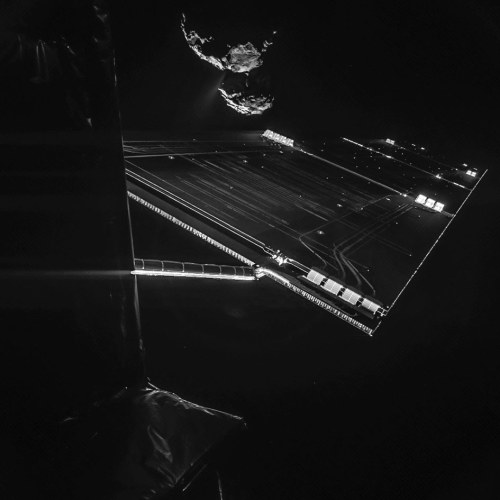
Comet 67P/C-G is framed by one of Rosetta’s solar wings, which is 46 feet long. A stream of gas and dust extends from an active area of the comet’s neck, about 10 miles away. (via NY Times)
More Posts from Astrotidbits-blog and Others
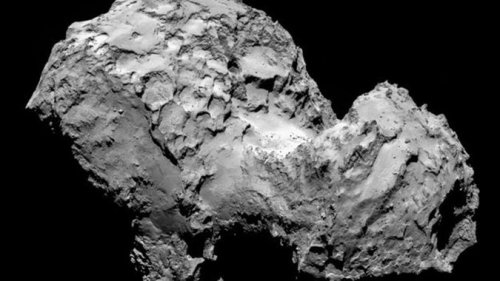
European Spacecraft Pulls Alongside Comet “After 10 years and a journey of four billion miles, the European Space Agency’s Rosetta spacecraft arrived at its destination on Wednesday for the first extended, close examination of a comet. A six-minute thruster firing at 5 a.m. Eastern time, the last in a series of 10 over the past few months, slowed Rosetta to the pace of a person walking, about two miles per hour relative to the speed of its target, Comet 67P/Churyumov-Gerasimenko.”
Find out more from the nytimes.

A once in a lifetime event visible every 75-76 years, Halleys comet returned in 1986. Halley is the only short-period comet that is clearly visible to the naked eye from Earth. It has been documented since 240 BC.

Jupiter. The king of our solar system. It might not be the greatest picture ever taken of Jupiter but at least I get to call it mine! You can even make out Jupiter’s great red spot, a storm so big that it could engulf Earth 3 times over!
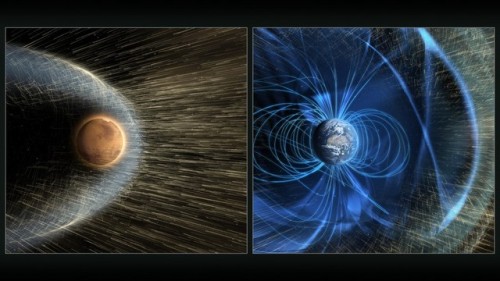
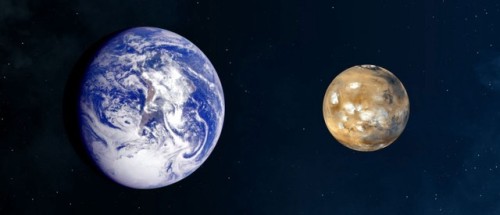
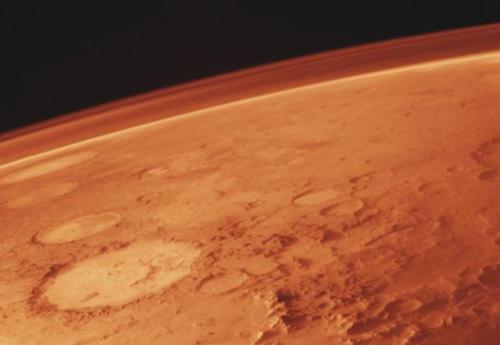
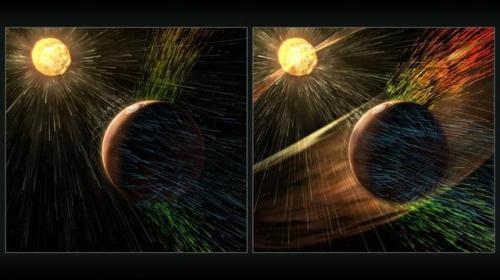
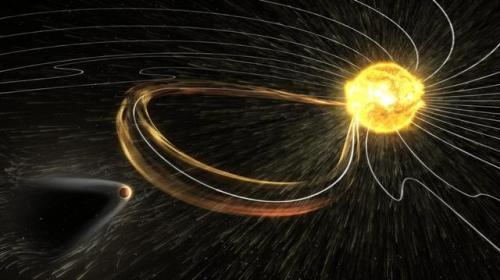
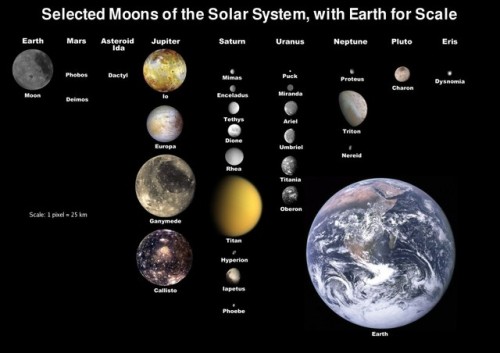
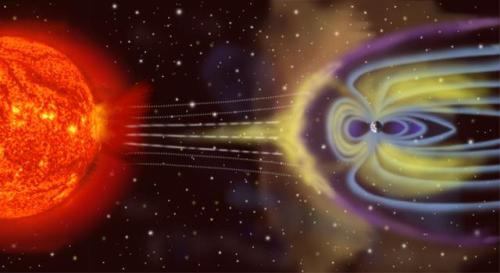
NASA’s MAVEN Discovers How Mars Lost Its Atmosphere
“The good news for us, mind you, is that the magnetic field here on Earth shows no sign of ceasing anytime soon. The dynamo in the core may do things like flip and reverse, swapping north-and-south magnetic poles, but we should continue to stay protected from the solar wind far into the foreseeable future: for billions of years (at least) to be sure. We could, conceivably, one day suffer the same fate as Mars, but our mass, our rotation and our active, dynamic core should keep the Earth’s magnetic field in business for at least as long as the Sun shines!”
If you had taken a trip to our Solar System four billion years ago, you would have found two worlds with liquid water oceans, temperate atmospheres and all the conditions we believe are needed for life. Earth would have been one of them, but Mars would have met all those criteria, too. It was long suspected that something happened to Mars around a billion years into the Solar System’s history that caused it to lose its atmosphere, something that should still be going on today. Thanks to NASA’s Maven mission, we’ve measured this atmospheric stripping by the Sun for the first time, and we’ve reached a few incredible conclusions, including that in about two billion years, Mars will be completely airless, and that if we were to terraform Mars today, it would hang onto this new atmosphere for millions of years.
Come get the full story of how Mars lost its atmosphere, and learn what NASA’s Maven mission has taught us so far!
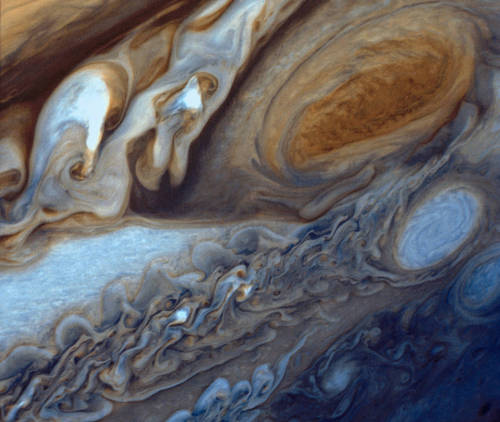
Jupiter’s Great Red Spot Viewed by Voyager 1
At about 89,000 miles in diameter, Jupiter could swallow 1,000 Earths. It is the largest planet in the solar system and perhaps the most majestic. Vibrant bands of clouds carried by winds that can exceed 400 mph continuously circle the planet’s atmosphere. Such winds sustain spinning anticyclones like the Great Red Spot – a raging storm three and a half times the size of Earth at the time of this photo, located in Jupiter’s southern hemisphere. In January and February 1979, NASA’s Voyager 1 spacecraft zoomed toward Jupiter, capturing hundreds of images during its approach, including this close-up of swirling clouds around Jupiter’s Great Red Spot.
Credit: NASA’s Goddard Space Flight Center
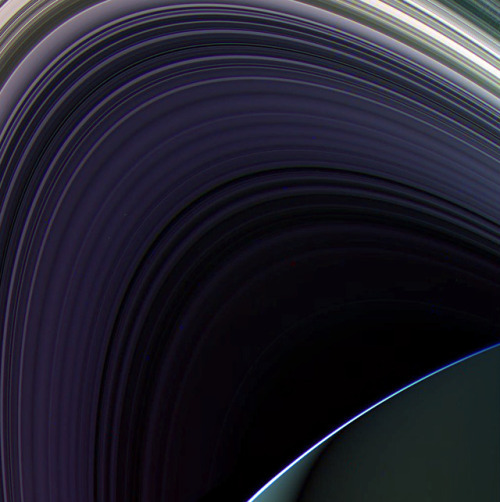
The rings of Saturn, observed by the Cassini space probe on May 3, 2017.
Had this been 2002, this moment would have been mind blowing!

Mostly because I would be posting a photo on a website that wasn’t around, from a phone technology that didn’t exist yet! I wish I had means of seeing what was on their VHS tapes…
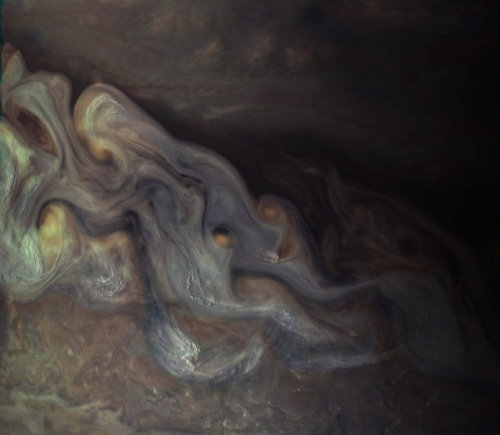
A close-up of an enhanced-color image of Jupiter’s clouds obtained by NASA’s Juno spacecraft.
NASA/SWRI/MSSS/Gerald Eichstädt/Seán Doran / New York Times

Jupiter

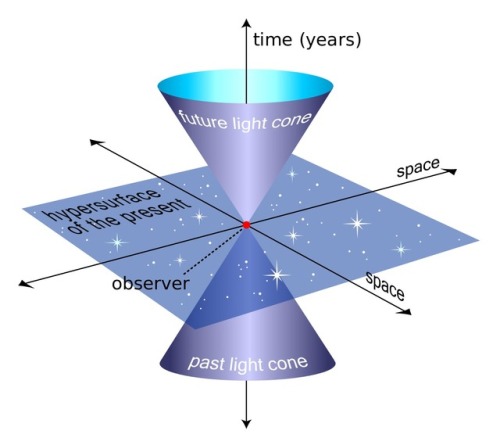


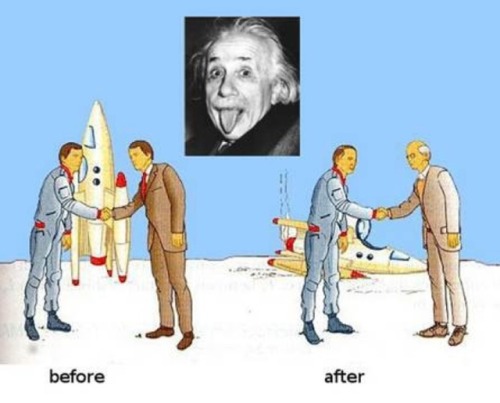
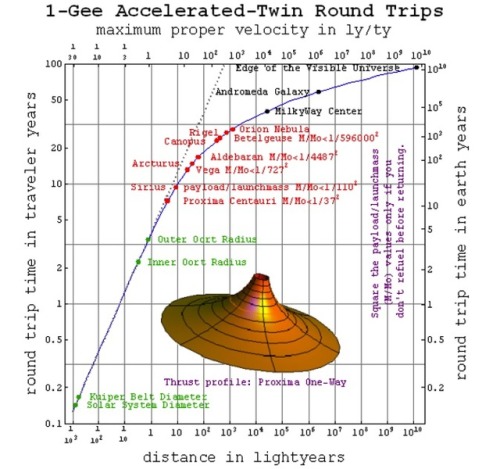
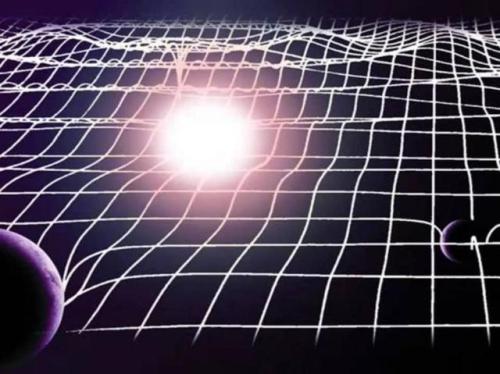
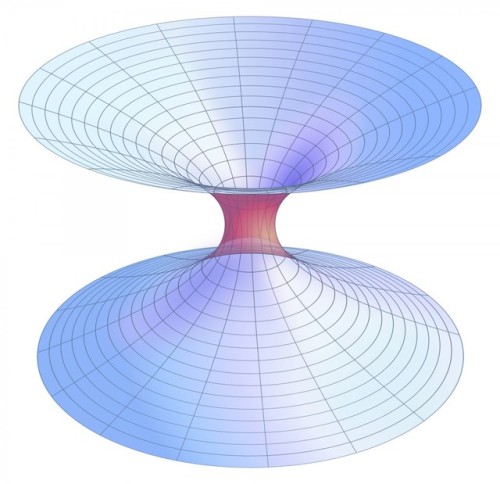
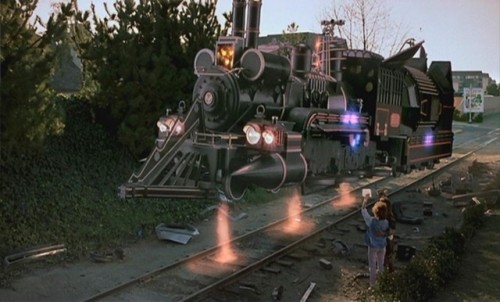
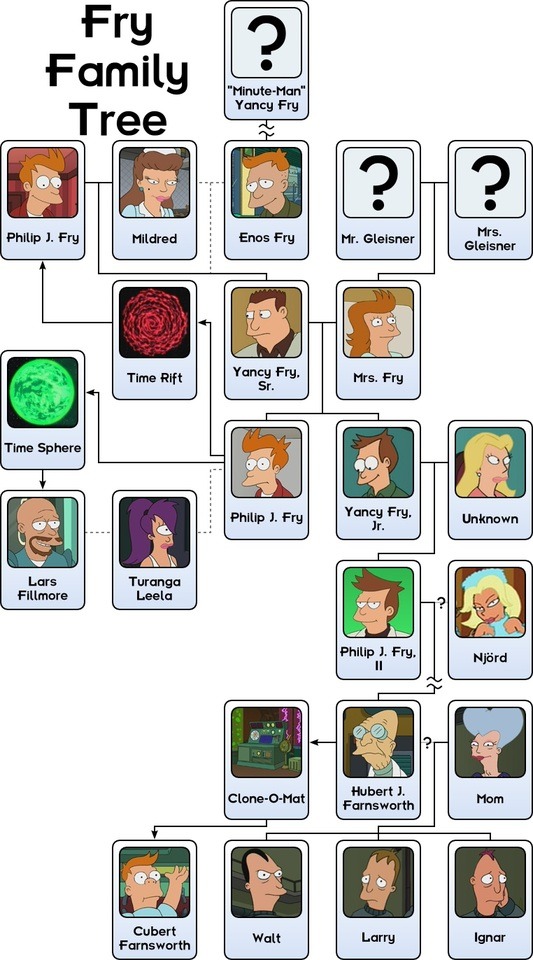
Is Time Travel Possible, According To Science?
“You can witness the evolution and destruction of humanity; the end of the Earth and Sun; the dissociation of our galaxy; the heat death of the Universe itself. So long as you have enough power in your space ship, you can travel as far into the future as you like.”
Have you ever wondered about time travel? Perhaps you have your destination in the far future, and want to see how it all turns out? Maybe you want to return to the past, and alter the future or present by your actions there? Or maybe you want to freeze time altogether? If you want to know whether it’s possible, the physics of relativity holds the answer. Special relativity allows us to control our motion through time by manipulating our motion through space. The more we move through space, the less we move through time, allowing us to travel as far as we want into the future, limited only by our energy available for space travel. But going to the past requires some specific solutions to general relativity, which may (or may not) describe our physical Universe.
What’s the status of traveling through time? Come get the scientific story (with a brand new podcast) today!
-
 astrotidbits-blog reblogged this · 8 years ago
astrotidbits-blog reblogged this · 8 years ago -
 astrotidbits-blog reblogged this · 8 years ago
astrotidbits-blog reblogged this · 8 years ago -
 astrotidbits-blog liked this · 8 years ago
astrotidbits-blog liked this · 8 years ago -
 ohnokokko reblogged this · 9 years ago
ohnokokko reblogged this · 9 years ago -
 stillezerbricht-blog liked this · 9 years ago
stillezerbricht-blog liked this · 9 years ago -
 p-u-r-e--i-m-a-g-i-n-a-t-i-o-n reblogged this · 10 years ago
p-u-r-e--i-m-a-g-i-n-a-t-i-o-n reblogged this · 10 years ago -
 p-u-r-e--i-m-a-g-i-n-a-t-i-o-n liked this · 10 years ago
p-u-r-e--i-m-a-g-i-n-a-t-i-o-n liked this · 10 years ago -
 prismilivein liked this · 10 years ago
prismilivein liked this · 10 years ago -
 rabidmonkeyut liked this · 10 years ago
rabidmonkeyut liked this · 10 years ago -
 kryptonitemind reblogged this · 10 years ago
kryptonitemind reblogged this · 10 years ago -
 groovypirate reblogged this · 10 years ago
groovypirate reblogged this · 10 years ago -
 viguy reblogged this · 10 years ago
viguy reblogged this · 10 years ago -
 bhawaniwasabi reblogged this · 10 years ago
bhawaniwasabi reblogged this · 10 years ago -
 twistedsickminded liked this · 10 years ago
twistedsickminded liked this · 10 years ago -
 steelskyline reblogged this · 10 years ago
steelskyline reblogged this · 10 years ago -
 steelskyline liked this · 10 years ago
steelskyline liked this · 10 years ago -
 jessicalilianne liked this · 10 years ago
jessicalilianne liked this · 10 years ago -
 iscykle liked this · 10 years ago
iscykle liked this · 10 years ago -
 thatjustlifeshesaid-blog1 liked this · 10 years ago
thatjustlifeshesaid-blog1 liked this · 10 years ago -
 thatjustlifeshesaid-blog1 reblogged this · 10 years ago
thatjustlifeshesaid-blog1 reblogged this · 10 years ago -
 burntsystems reblogged this · 10 years ago
burntsystems reblogged this · 10 years ago -
 siluetasysombras reblogged this · 10 years ago
siluetasysombras reblogged this · 10 years ago -
 strongpepper reblogged this · 10 years ago
strongpepper reblogged this · 10 years ago -
 darksource reblogged this · 10 years ago
darksource reblogged this · 10 years ago -
 beckit-g liked this · 10 years ago
beckit-g liked this · 10 years ago -
 ajisai-yatsurugi reblogged this · 10 years ago
ajisai-yatsurugi reblogged this · 10 years ago -
 welivelifelivid reblogged this · 10 years ago
welivelifelivid reblogged this · 10 years ago -
 marsinsane reblogged this · 10 years ago
marsinsane reblogged this · 10 years ago -
 dankshifty reblogged this · 10 years ago
dankshifty reblogged this · 10 years ago -
 40095 reblogged this · 10 years ago
40095 reblogged this · 10 years ago -
 momoscape-blog reblogged this · 10 years ago
momoscape-blog reblogged this · 10 years ago -
 eroseblossom reblogged this · 10 years ago
eroseblossom reblogged this · 10 years ago -
 bloodstainedblossom reblogged this · 10 years ago
bloodstainedblossom reblogged this · 10 years ago -
 dimens1ons reblogged this · 10 years ago
dimens1ons reblogged this · 10 years ago